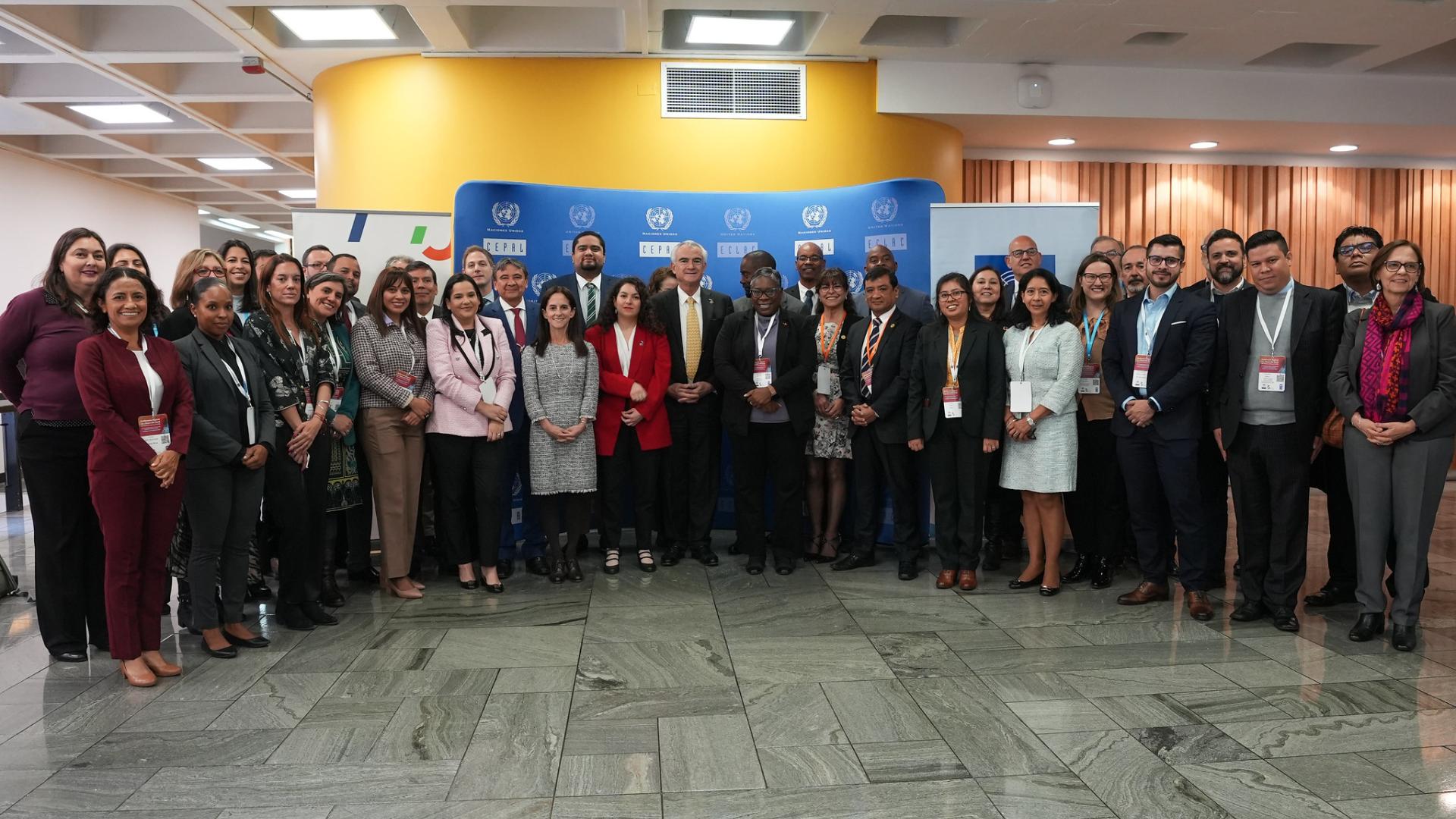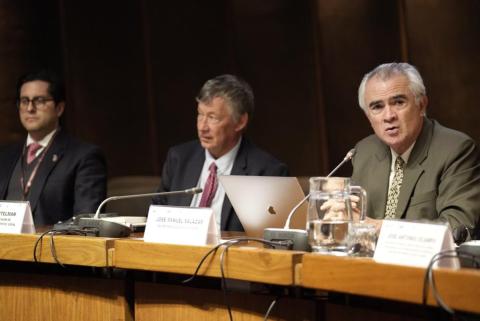Briefing note
The event presented an opportunity to (i) have a better understanding of how different types of financial innovations can help solve the problem of financial inclusion of SMEs in a comparative perspective at the regional and national levels; (ii) obtain feedback on the usefulness and possible use of the instruments presented by development banks; (iii) discuss how to move forward on the topic of financial innovation for the sake of financial inclusion.
The seminar is part of the ECLAC project that seeks to promote the development of a wider range of financial instruments that allow development banks to boost the financial inclusion of the SME sector in the economy. In this respect, financial inclusion is a policy of productive development. Beyond expanding the levels of financial access and banking, financial inclusion also entails policies that improve and perfect the use and instruments of the financial system for SMEs and households that are already part of the formal financial circuit. The project focuses on the capacity of development banks to develop instruments aimed at SMEs, a fundamental aspect for Latin America and the Caribbean, since these companies are key actors in the productive structure and employment generation. That is why financial inclusion should be conceived as a policy of productive insertion.
At the seminar, it was suggested that financial inclusion is a pending task in Latin America and that the role of financial development institutions is to take care of what private banking does not prioritize: promoting financial inclusion. It was highlighted that the use of online platforms generates a great opportunity to promote financial inclusion via development banks.
Development banks play an important role in generating innovation oriented towards financing, both directly and jointly with other banks. However, in the context of Latin America and the Caribbean, the adoption of financial innovation poses important challenges, since it requires developing a range of instruments designed in a context of productive heterogeneity that characterizes the region. These new instruments must be designed to meet the financing needs of SMEs. The participants of the seminar discussed the regulation of new technological fields and the need to institutionalize innovation. For these reasons, a continuous dialogue and exchange of experiences is required to investigate how the different institutions of development financing are acting in order to improve financial innovation.
Additional information is available in the following links:
Video coverage (In Spanish)
The leaders and experts answer the following four questions:
- What is the status of financial inclusion of SMEs in the region?
- Can financial inclusion be a policy of productive development?
- What are the activities that [your organization] develops in support of financial inclusion of SMEs?
- What do you think of the seminar organized by ALIDE and ECLAC?
- Pedro Grados, president of Cofide,
- Jessica López, general manager of BancoEstado,
- Mélida Mancía, president of Bandesal,
- Juan Carlos Parra, assistant general manager de CFN,
- Hugo Campidoglio, Ministry of Production, Argentina
External news about the seminar and related topics:
- ALIDE (2017-08-21) Banca de Desarrollo ocupa papel principal en innovación para promover la inclusión financiera en América Latina y el Caribe
- BANECUADOR (2017-08-16) Presidente de BanEcuador expuso logros Institucionales en el seminario ALIDE – CEPAL
- ANDINA (2017-08-17) Cofide busca contribuir a reducir pobreza con más cultura financiera
- ANDINA (2017-08-16) Regiones con canon: Cofide prevé financiar sus obras de infraestructura
- ANDINA (2017-08-16) Comercio exterior: Cofide planea otorgar financiamiento a pymes exportadoras
- ANDINA (2017-08-16) Mypes: Desembolsos de Cofide para créditos blandos la próxima semana
- LA REPUBLICA (2017-08-17) Uso de redes sociales será clave para el análisis de riesgo en créditos
- SELA (2017-08-17) ALIDE y CEPAL organizan seminario de inclusión financiera
- AGENCIA AGRARIA (2017-08-16) Hoy y mañana se realiza seminario sobre el potencial de la banca de desarrollo para promover la inclusión financiera en ALC
- AMÉRICA ECONOMÍA (2017-08-15) ALIDE y CEPAL organizan seminario para promover la inclusión financiera en América Latina y el Caribe



